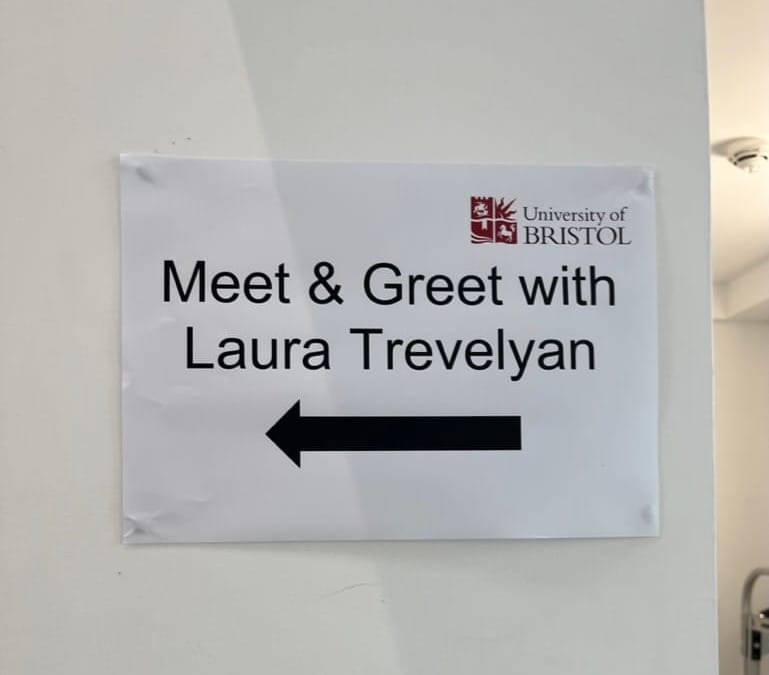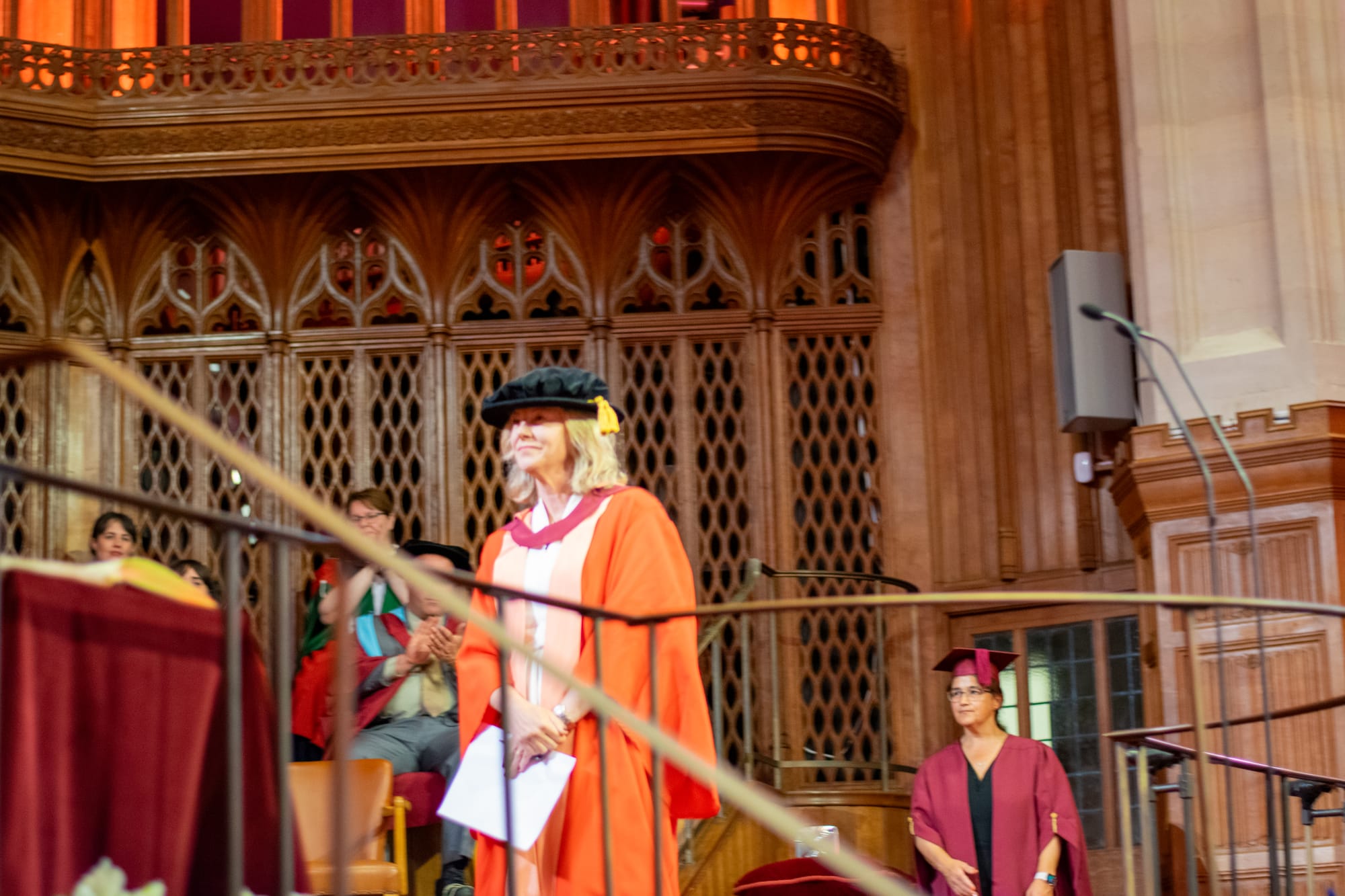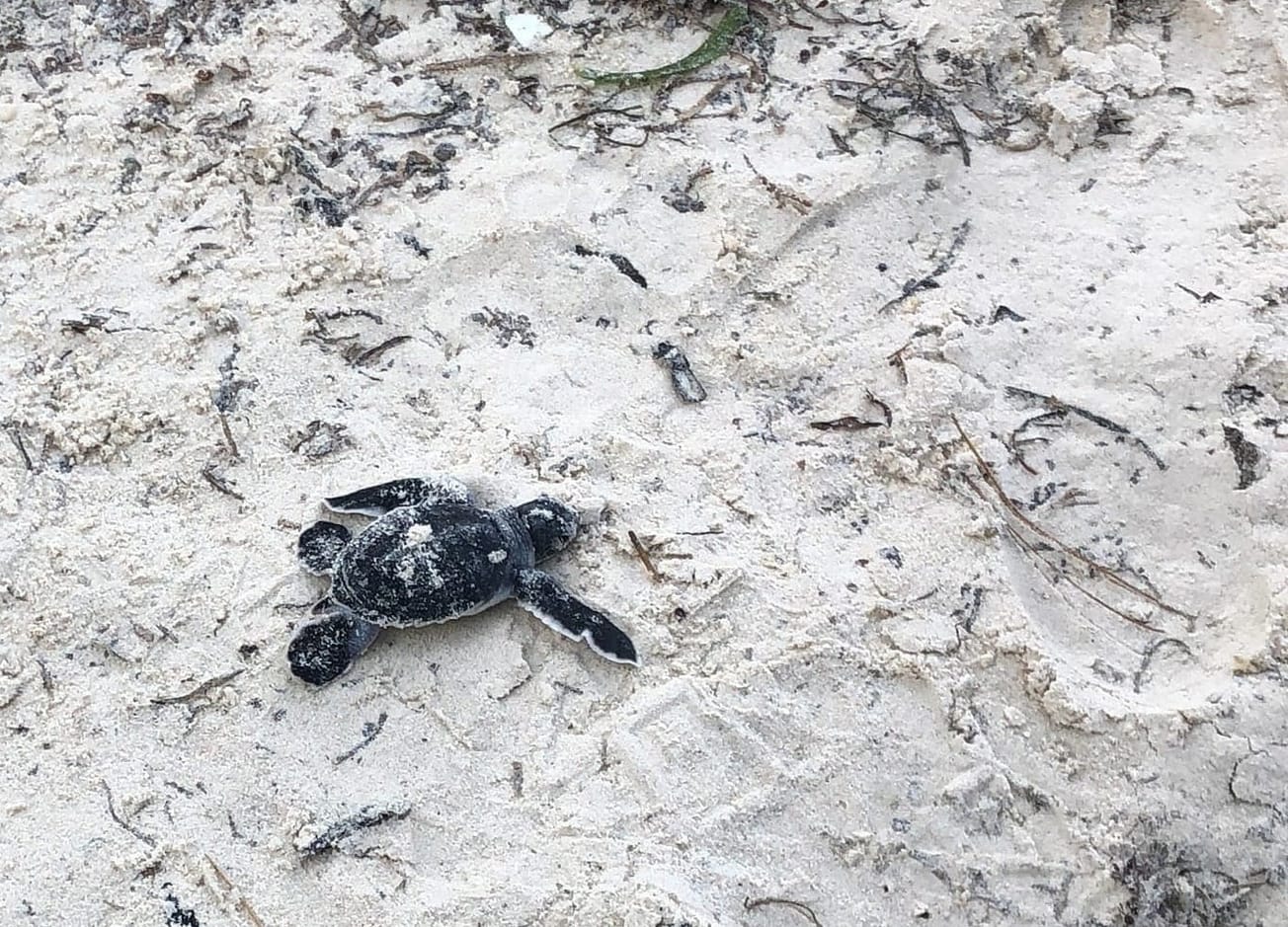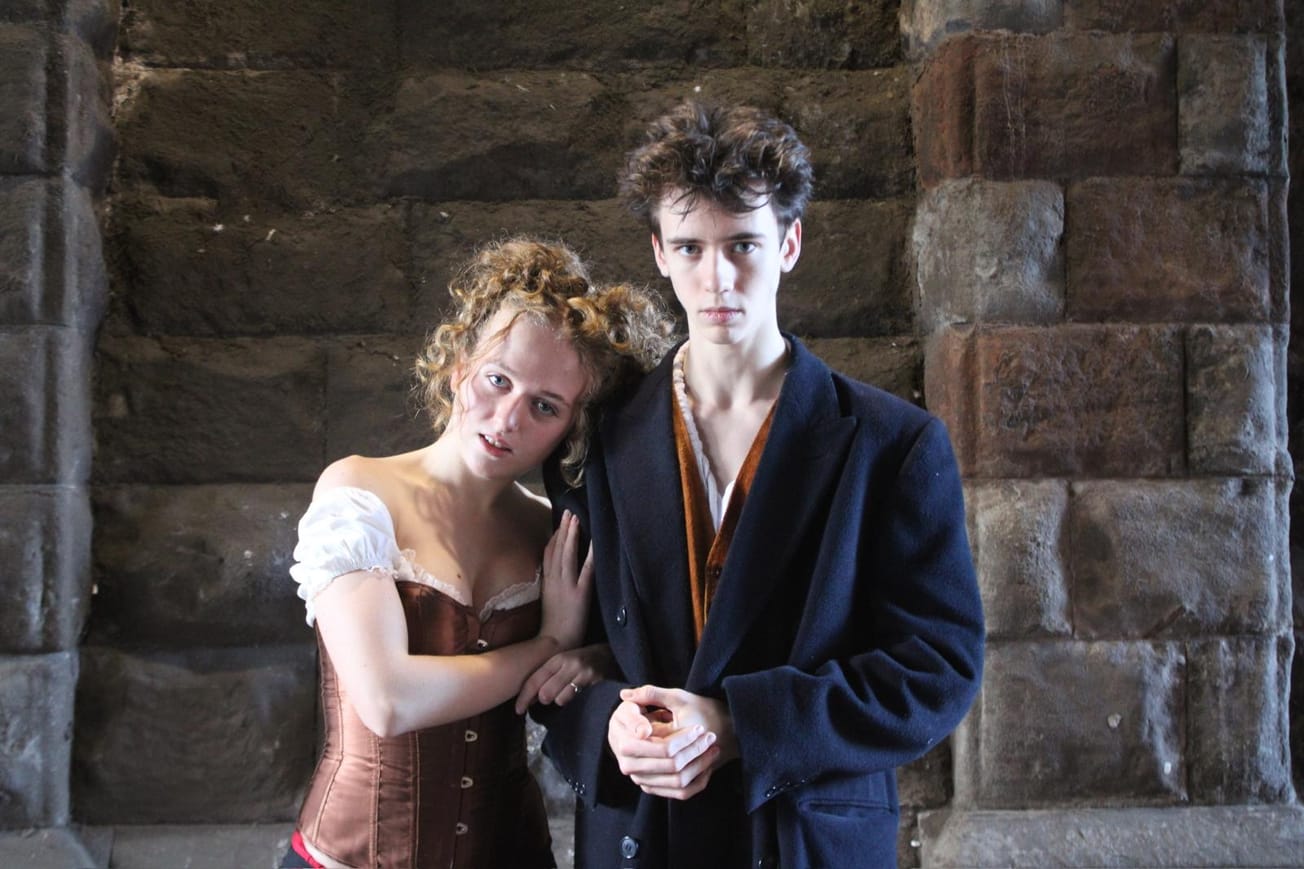Not many of us will witness firsthand a world-changing event. Laura Trevelyan has reported on several.
In the three and a half decades since she graduated from the University of Bristol, Laura has had the sort of career that makes you immediately want to read her autobiography. As a political journalist at the BBC she reported on, from the ground, the IRA ceasefire in Northern Ireland, the January 6 Capitol Building riots, and day-to-day life in Gaza to name just a few.
After discovering family ties to the Atlantic slave trade, she left her full-time position as a BBC news anchor to devote more time to the fight for reparatory justice in the Caribbean. This week, she returned to the Wills Memorial Building, this time to receive an honorary degree for her work. She also has great hair. Basically, you'll want to hear what she's got to say.
In a complicated world - glad to find that @BristolUni students are as engaged and curious as ever. Lovely to meet you all, and to field questions from @annierosaa @EpigramPaper ! pic.twitter.com/HL4ysWFefA
— Laura Trevelyan (@LauraTrevelyan) July 25, 2024
Students were lucky enough to catch up with her on Tuesday (July 23), as Epigram co-Editor Annie picked her brains on all things journalism, US politics, and making the world a better place for future generations.
Here are six things we learned from our chat with Laura earlier this week.
1: The basics never go out of style.
After a breezing through her BA in Politics with only minor hiccups (she originally applied to do English Literature but 'just couldn't hack' Beowulf), Laura headed to Cardiff to complete a postgraduate diploma in journalism. Although the course was taught on typewriters in a time before 'SEO' even existed, she believes that everything she learned back in 1990 remains relevant in 2024.
'I still know shorthand to this day,' she laughed, admitting that she's not sure if it's still a part of any postgraduate diplomas, but that it's a 'brilliant skill for any reporter to have.' Aside from that, the 'essentials' will 'never change', she says.
'Focusing on facts, creating a balanced and reliable report... these things will never not be crucial for journalism.'
2: 'Get off your backsides!'
It becomes clear quickly into our conversation that Laura is essentially a journalistic sniffer dog – she can smell a great story long before the rest of us mortals have even started to look for it. And there's no excuse in her books for not chasing a great story.
Multiple times throughout the morning Laura catches the scent of something which could be written for Epigram, and urges us to action. Admittedly, she is right about each one. By the end of our chat it feels like we should be naming her as our chief strategist or paying her for her time as a consultant.

To become a journalist you need to have your radar on at all time. You need to work hard, be speedy, and refuse to be lazy even for a second. In other words, 'get off your backsides and write!'
3: Sometimes less is more.
'People forget to ask the basic questions,' says Laura. She cautions against being overly ambitious during interviews, whether they be with regular people on the street or the Secretary General of the UN (both of which she has experience with).
What should you do instead? Ask open questions, never leading ones. Never assume things about your interviewee, always go in with an open mind. And always ask the obvious – often they're the questions that get you the best answers.
4: We all need to get hobbies.
When not interviewing world leaders or campaigning for social justice, Laura tells us she plays a lot of tennis. 'Everyone needs a hobby outside of work,' she explains. After a stressful day, she finds being active therapeutic, and encourages everyone else to get involved in a sport if they can.

If you're wondering, yes, she did watch Wimbledon when she could – the time difference meant many of the matches were on late at night in the States – and she was 'happy to see Alcaraz win,' but Andy Murray will always have her heart. Clearly a woman of taste.
5: 'Healing begins with acknowledgement'
In 2022, Laura travelled to Grenada, where members of her family had owned slave plantations in the eighteenth and nineteenth centuries. Local historian and expert in reparations Nicole Phillip-Dowe showed her around the island, encouraging Laura to really take in the enormity of the past.
'She wanted us to touch the torture devices they used to use on enslaved people. I was particularly upset by a flogging device used to beat the enslaved for rebelling.'
Some people – even some of Laura's own family – told her that nothing good could come of bringing up the past in this way. But she couldn't do nothing, and by apologising formally to the people of Grenada, by donating her own money to reparations, 'I hoped to set a precident.'
Today in Grenada, 7 members of the Trevelyan family presented a formal letter of apology to the people of this Caribbean island. “We apologize for the actions of our ancestors in holding your ancestors in slavery.” 104 members of the Trevelyan family signed the apology. pic.twitter.com/9pDqesJXNU
— Laura Trevelyan (@LauraTrevelyan) February 27, 2023
Laura cannot, of course, right the wrongs of the slave trade on her own, but she believes there is power in trying – listening to the people of the Caribbean and validating their hurt must be at the heart of any reparatory justice.
'Nicole said to me during my visit to Grenada that "healing begins with acknowledgement." That will always stick with me.'
6: There's always more we can do.
But that was just the beginning, and we're very much in the middle of the fight right now, Laura says.
'A couple of weeks ago hurricane Beryl devastated the Caribbean... for them it really is a climate emergency right now. Most people who live [in the Caribbean islands] descend from enslaved people who were taken there from Africa.' Our ancestors are responsible for populating these islands and so we, Laura argues, have a moral duty to help them thrive.
The Grenada Disaster Relief Fund has been activated in the wake of the devastation wrought by Hurricane Beryl on Carriacou and Petit Martinique - details for those who want to support the rebuilding are here. https://t.co/pqOzQkVloa
— Laura Trevelyan (@LauraTrevelyan) July 2, 2024
So what can you do? Listen, engage, and care.
'Climate change is inextricably linked to reparatory justice. If you want to help the cause you can be engaged in politics – advocate for the planet. Write to your MP demanding they support bills improving the planet. It's so important you stay interested.'
Epigram wishes Laura a hearty congratulations on her well-deserved honorary degree. We can't wait to see where she goes next, or which current University of Bristol student will go on to be the next Laura Trevelyan.





